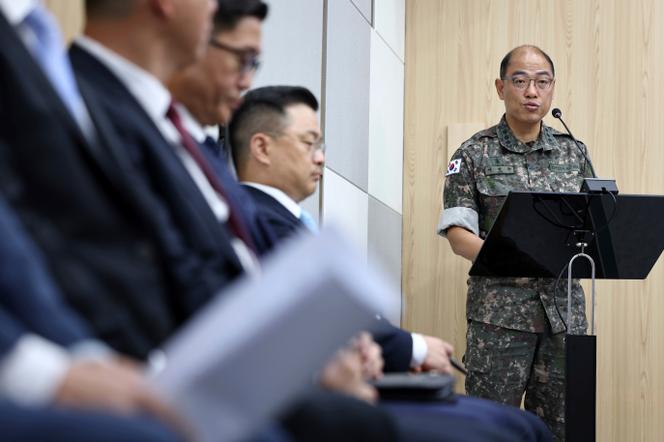


Rising tension on the Korean peninsula is eroding the safeguards set up by both countries against the risk of confrontation. Almost every day brings its share of incidents, as witnessed by the infiltration into the demilitarized zone (DMZ) separating the two Koreas on Sunday, June 9, of some 20 soldiers from the North, who quickly returned to their territory after being fired upon by soldiers from the South. On the same day, Kim Yo-jong, sister of the leader Kim Jong-un and who pulls the strings of diplomacy in Pyongyang, threatened the South with new reprisals if it did not immediately cease its acts of confrontation.
Seoul had just reactivated the giant loudspeakers broadcasting world news and K-pop at full volume to the North. This was the South's response to Pyongyang's new dispatch of balloons laden with garbage. These old tactics of psychological warfare initiated during the Korean War (1950-1953) are activated as tension between the two neighbors rise, as is the case today. This new escalation is worrying even Washington, which fears an October surprise – a more serious provocation on the part of Pyongyang, likely to affect the US presidential election on November 5.
Propaganda balloon exchanges had been suspended in the wake of the rapprochement, initiated in 2018 and marked by the Pyongyang Declaration signed by leader Kim and President Moon Jae-in (2017-2022), which established, among other things, buffer zones and provided for the dismantling of military installations along the DMZ. The aim was to avoid unintentional clashes. The détente did not last: Following the failure of the US-North Korea summit in February 2019, under President Donald Trump, the North resumed its provocation. The pace quickened after Russia's 2022 attack on Ukraine, ardently supported by North Korea to the point of supplying the Russian army with various munitions, according to Washington, and supporting Moscow's annexation of Ukrainian territories.
In the same year, conservative President Yoon Suk Yeol, elected on a platform of firmness toward the North, put an end to the policy of rapprochement initiated by his predecessor. In November 2023, Pyongyang announced that it would "resume all military activities in the demilitarized zone," effectively invalidating the 2018 declaration.
Since the announcement, the North has rebuilt guard posts and deployed heavy weapons on the DMZ. It has stepped up missile launches and artillery drills and attempted to place a spy satellite into orbit. The South responded with major military maneuvers with its American ally.
You have 65.56% of this article left to read. The rest is for subscribers only.
